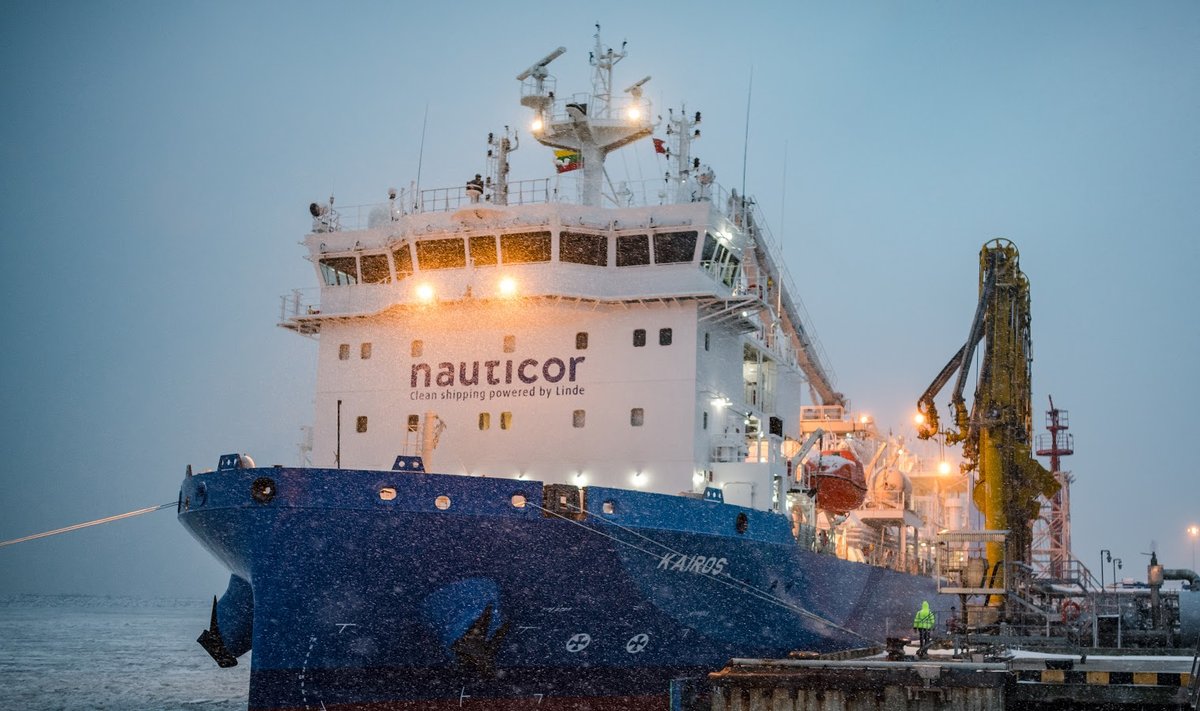The founding of the Lithuanian Maritime Cluster was initiated by the Lithuanian LNG Cluster, which has been operating starting from 2016. Currently, 17 partners are involved in its activities, including Lithuanian and international businesses and institutions of higher learning.
Organizations like the Klaipeda University, the Klaipeda Free Economic Zone, the Klaipeda Science and Technology Park (KSTP), Lithuanian Railways, Klaipedos Nafta, Ignitis, Bega, BLRT Grupp and others have already partnered the maritime cluster. It is expected that the cluster will unite an even wider array of port companies, members of the shipbuilding and repair, as well as maritime energy sectors. The new platform will be coordinated by the KSTP.
“Maritime economy is a strong driving force of the wider economy, it is now and will surely remain one of the most promising sectors, so Klaipeda will naturally pay it a lot of attention,” says Andrius Sutnikas, the Head of Business Development at the KSTP. “The various arms of the maritime industry have been extensively developed in our region, we have rich traditions, we are purposefully making a way for ourselves in the competitive international market; however, we sometimes lack the wider perspective when evaluating our current potential, which could become the key to new opportunities not only in Klaipeda but the entire country of Lithuania.”
Aspiring to encourage the creation of high added-value products and services, the cluster will be geared towards automatization, digitalization, the Internet of Things, data analysis and utilization, artificial intelligence, and system integration solutions. The new platform will initiate innovative projects and invite the scientific sector of Western Lithuania to make them a reality, including the Marine Research Institute of the Klaipeda University, the Aquaculture Competency Center, and other scientific organizations and laboratories.
Internationalization and improving the competencies necessary for the development of the maritime sector will be no less important parts of the cluster’s operations while cooperating with similar clusters in the EU countries and presenting Lithuanian tech projects and innovations created in Lithuania internationally.
The immediate plans of the Lithuanian Maritime Cluster involve organizing tech training, active participation in the Blue Growth Leaders Academy, which will start in September at the Klaipeda University. This project will connect internationally acclaimed lectors and offer the opportunity for business leaders, professionals from various sectors, and gifted students to gain some valuable knowledge concerning the blue economy.
The Lithuanian Maritime Cluster will also be involved in making sure that the Klaipeda 2030 Economic Development Strategy becomes a reality by supporting sustainable utilization of marine resources, improving competencies relevant to advanced industries, biotech, creation of cleantech, and other ambitious goals.
